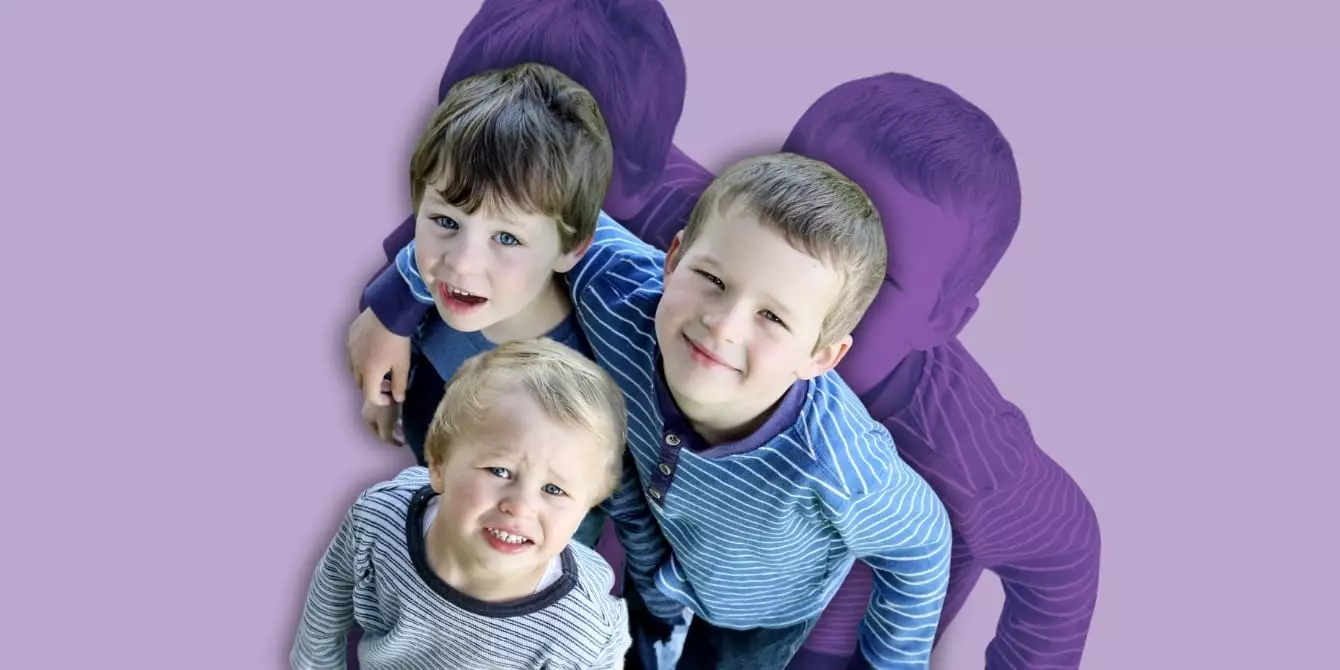Our upbringing plays a critical role in shaping who we are as individuals, and recent research highlights the importance of birth order and family size in this process. A substantial study published in the Proceedings of the National Academy of Sciences (PNAS) in December 2024 provides valuable insights into how these factors can influence personality traits. The study, led by researchers Michael C. Ashton and Kibeom Lee, surveyed over 700,000 participants, offering a comprehensive view of personality differences associated with one’s position within the family structure.
The findings suggest that different birth orders correlate with distinct personality traits, particularly in areas such as kindness, humility, and social cooperation. This is especially pronounced among middle children, who appear to embody strong cooperative characteristics. Growing up in a household with siblings often necessitates the practice of negotiation and compromise, skills that seem to develop more prominently among those who are neither the eldest nor the youngest siblings.
Middle children often find themselves in a unique position within family dynamics. They tend to act as mediators in sibling disputes and are frequently seen selflessly sharing resources, illustrating their inherent cooperative nature. The researchers contend that being sandwiched between siblings demands a level of adaptability that can cultivate social skills – specifically kindness and cooperation. The opportunities to engage in conflict resolution and emotional management are heightened in larger families, creating individuals who naturally exhibit these valuable traits.
Interestingly, the study suggests that individuals from families with six or more children score higher in kindness and humility when compared to only children or those from smaller families. This raises intriguing questions about how family size can create deeper communal bonds and foster a culture of shared support and collaboration among siblings.
On a different note, the study reveals that only children and firstborns show a slight advantage in openness to new experiences, which encompasses traits such as intellectual curiosity and creativity. This may reflect their roles as pioneers in the family unit, often exploring new ideas and experiences without the influence of additional siblings. Interestingly, while firstborns exhibit higher levels of openness, they seem to lag in traits associated with kindness and humility compared to their younger siblings.
This juxtaposition suggests that while firstborns are inclined towards independence and exploration, middle children, and even younger siblings, may benefit more from collaborative experiences, thereby reinforcing their capacity for empathy and altruism.
The Role of Shared Experiences in Personality Development
One significant finding is the influence of shared experiences, such as family traditions, communal activities, and religious upbringing, in shaping personality traits. These experiences are especially notable in larger families where high levels of interaction can foster a sense of empathy and compassion. The researchers found that an environment that emphasizes mutual support can directly impact the development of positive personality traits.
For instance, religious traditions often instill values of selflessness and community support, which may cultivate a more compassionate individual. However, these influences are not exclusive to larger families; even in households with an only child, parents can create environments conducive to kindness by fostering collaborative activities and shared responsibilities.
Broadening Perspectives with the HEXACO Model
The study’s methodological strength is rooted in its use of the HEXACO personality model, an advanced framework that accounts for six dimensions of personality: honesty-humility, emotionality, extraversion, agreeableness, conscientiousness, and openness to experience. This multi-dimensional approach provides a richer understanding of how family dynamics influence personality traits, offering a more detailed picture than previous research.
With its diverse sample comprising individuals from various English-speaking countries, including the United States, Canada, and the UK, this analysis broadens the conversation around familial influences on personality development. Such diversity reinforces the notion that individual experiences across different cultural contexts can yield similar patterns regarding birth order and personality traits.
Ultimately, the research underscores the profound impact of family dynamics on individual personality development. As parents, understanding these nuances can influence how they approach raising their children. Whether fostering collaboration among siblings or creating supportive environments for only children, the emphasis on nurturing kindness and empathy can have lasting repercussions on a child’s emotional and social skills.
While the unique characteristics associated with birth order and family size may influence personality traits, the fundamental element of parenting remains key. It is the love, support, and encouragement provided within the family unit that cultivates resilience, empathy, and kindness in every child, regardless of their position in the birth order. Recognizing and fostering these traits can help them evolve into compassionate and well-rounded individuals.

